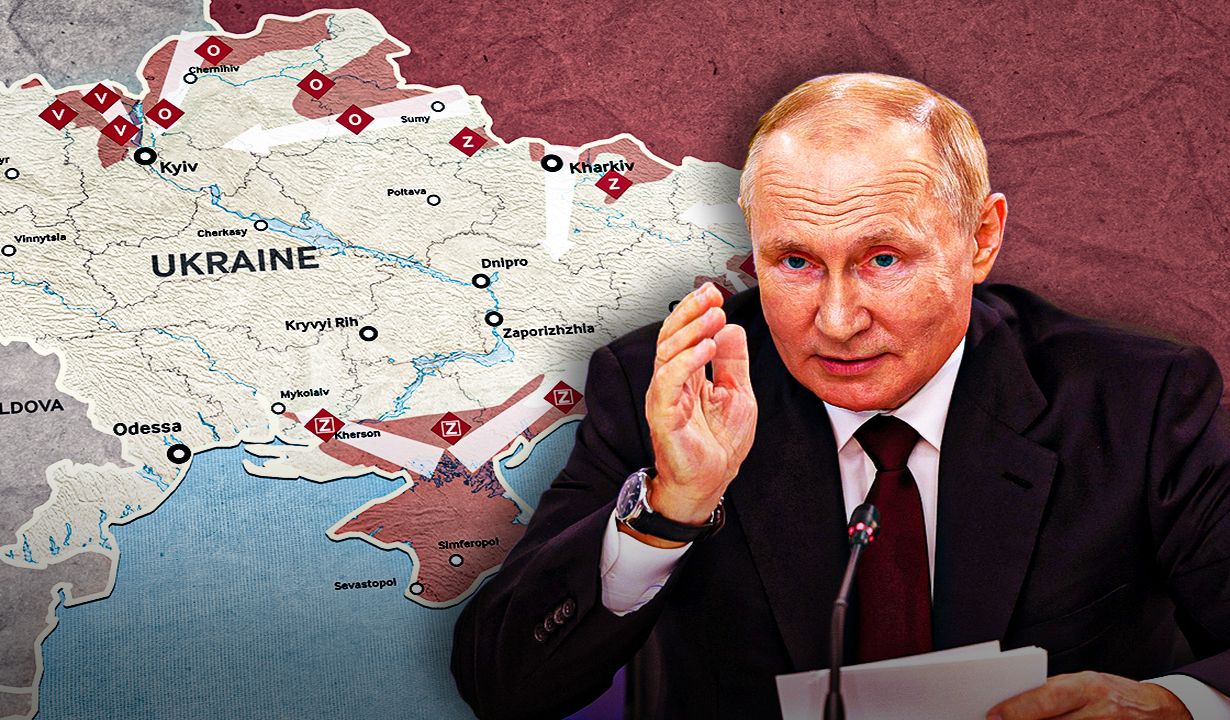
Why did Russia annex Crimea? The annexation of Crimea by Russia in 2014 shocked the world. Russia claimed it was protecting ethnic Russians and Russian speakers in Crimea. Ukraine and many international observers saw it as a violation of international law. Historical ties between Russia and Crimea date back centuries, with Crimea being part of the Russian Empire and later the Soviet Union. Strategic reasons also played a role, as Crimea hosts the Black Sea Fleet in Sevastopol, giving Russia military advantages. Economic factors like access to oil and gas reserves in the Black Sea were also significant. Political motives included boosting domestic support for the Russian government. Understanding these reasons helps explain the complex situation surrounding Crimea's annexation.
Historical Context
Understanding Crimea's past helps explain its present. Here are some key historical facts about this region.
- Crimea has a rich history dating back to ancient times, with Greek colonies established as early as the 7th century BC.
- The Crimean Peninsula was part of the Byzantine Empire, the Khazar Khaganate, and the Golden Horde before becoming part of the Ottoman Empire in the 15th century.
- In 1783, Catherine the Great annexed Crimea to the Russian Empire, marking the beginning of Russian influence in the region.
- Crimea was transferred from the Russian Soviet Federative Socialist Republic to the Ukrainian Soviet Socialist Republic in 1954 by Soviet Premier Nikita Khrushchev.
Geopolitical Importance
Crimea's strategic location has made it a focal point for various powers throughout history.
- The peninsula is situated on the northern coast of the Black Sea, making it a crucial naval and trade hub.
- Sevastopol, a major port city in Crimea, has been the home of Russia's Black Sea Fleet since the 18th century.
- Control over Crimea provides significant military advantages, including access to warm-water ports and strategic maritime routes.
The 2014 Annexation
The annexation of Crimea by Russia in 2014 was a pivotal event with far-reaching consequences.
- In February 2014, Russian troops began occupying key locations in Crimea, leading to a controversial referendum.
- The referendum, held in March 2014, resulted in a majority vote for joining Russia, though the legitimacy of the vote has been widely disputed.
- Following the referendum, Russia formally annexed Crimea, a move condemned by Ukraine and much of the international community.
- The annexation led to economic sanctions against Russia by the United States, the European Union, and other countries.
Cultural and Demographic Changes
The annexation has significantly impacted the cultural and demographic landscape of Crimea.
- Crimea is home to a diverse population, including ethnic Russians, Ukrainians, and Crimean Tatars.
- The Crimean Tatars, a Muslim ethnic minority, have faced persecution and displacement since the annexation.
- Russian has become the dominant language in Crimea, with Ukrainian and Crimean Tatar languages receiving less official support.
- Many Ukrainians and Crimean Tatars have left the peninsula due to political and social pressures.
Economic Impact
The annexation has had profound economic effects on Crimea and its residents.
- Crimea's economy has struggled due to international sanctions and isolation from global markets.
- Tourism, once a major industry in Crimea, has declined significantly since 2014.
- Russia has invested heavily in infrastructure projects, including the construction of the Crimean Bridge, which connects the peninsula to mainland Russia.
- Despite these investments, many Crimeans face economic hardships, including high unemployment and rising prices.
International Response
The global reaction to Crimea's annexation has been mixed, with various countries and organizations taking different stances.
- The United Nations General Assembly passed a resolution affirming Ukraine's territorial integrity and recognizing Crimea as part of Ukraine.
- The European Union and the United States have imposed sanctions on Russia, targeting individuals and businesses involved in the annexation.
- Some countries, including China and India, have taken a more neutral stance, calling for dialogue and peaceful resolution.
- Russia has faced diplomatic isolation and criticism from many Western countries but has also found support from some allies.
Legal and Human Rights Issues
The annexation has raised numerous legal and human rights concerns.
- Ukraine and many international bodies consider the annexation illegal under international law.
- Human rights organizations have reported abuses in Crimea, including arbitrary arrests, disappearances, and restrictions on freedom of speech and assembly.
- The European Court of Human Rights has received numerous complaints related to human rights violations in Crimea.
- Efforts to address these issues have been complicated by the lack of international recognition of Russia's control over Crimea.
Final Thoughts on Crimea's Annexation
Crimea's annexation by Russia in 2014 remains a significant event in modern history. This move has sparked international debates, sanctions, and geopolitical tensions. The region's rich history, cultural diversity, and strategic importance make it a focal point for global politics. Understanding the complexities of Crimea's past and present helps us grasp the broader implications of territorial disputes worldwide. While the future of Crimea remains uncertain, its story is a reminder of the delicate balance between national interests and international law. As we continue to watch developments unfold, it's crucial to stay informed and consider the perspectives of all parties involved. This knowledge not only enriches our understanding of global affairs but also underscores the importance of diplomacy and peaceful resolution in addressing such conflicts.
Was this page helpful?
Our commitment to delivering trustworthy and engaging content is at the heart of what we do. Each fact on our site is contributed by real users like you, bringing a wealth of diverse insights and information. To ensure the highest standards of accuracy and reliability, our dedicated editors meticulously review each submission. This process guarantees that the facts we share are not only fascinating but also credible. Trust in our commitment to quality and authenticity as you explore and learn with us.
